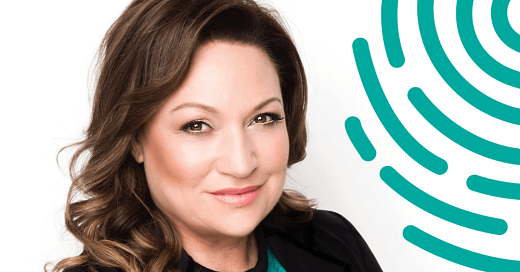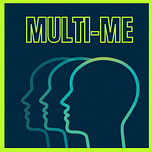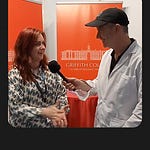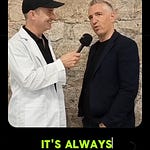Norah Casey – Entrepreneur – Broadcaster – Ex-Dragon
Career Profile
Formerly a Dragon in Dragon’s Den, Norah Casey is based in Dublin and works between radio, television and business projects.
She is an angel investor who has experience working with a variety of different people and assisting in the start-up of innovative ideas. Norah is a founder of the London-based Women’s Irish Network and The International Women’s Forum.
She was awarded The Veuve Clicquot Business Woman of the Year Award for 2007/8. Norah has won The Publisher of the Year Award for three years running for her time running media giant Harmonia. It sold millions of magazines annually for the Irish, British, US market and China.
We spoke with Norah about her career journey and gained useful advice on how to develop a successful business. Her helpful tips are detailed below.
1. Failure is a valuable lesson
When discussing the potential of failure, Norah turned this into a positive by explaining that “the benefit of failure is that we learn to adapt. Unless we have the benefit of sometimes experiencing things not going right, then we don’t go over what went wrong and we don’t become as flexible as we should be.” Moreover, Norah mentioned that “it is ok to fail, but fail fast. People need to be proactive and use initiative in ways to tackle a crisis and remain.”
2. Be an entrepreneur
“A well rounded individual will have charisma, good communication skills and resilience skills. Confidence and adaptability develops as they grow.” The key is to have entrepreneurial traits and hold the drive and determination to succeed. Ex-dragon stated that “Angel investors look more for an individual who holds entrepreneurial traits and is going to take on board advice, rather than the idea itself.
The idea is nothing. The individual needs to be capable of taking your money but more importantly your advice.” If you are someone who holds entrepreneurial traits you will “work on making your original idea better and more user friendly.”
Norah went onto explain that as an entrepreneur you can either be a hedgehog or a fox. “A hedgehog solidly goes along, knowing what they’re doing and hunkers down on their idea when things get tough. A fox goes for every bright idea that they see.” Clearly, being a hedgehog is better.
Furthermore, being an entrepreneur means that you need to work on your own initiative. “Having an innovative state of mind is one of the most important things for an entrepreneur. This means they don’t get fixated on the one idea they had. They also have the ability to think flexibly. If your idea isn’t successful in the beginning it is important to have this mindset in order to improve or reimagine it.”
3. Figures are beautiful
“If you don’t understand your finances you may as well go and work for someone. It’s important to have an understanding of finance on the occasion that you want to do something new with your business. You can worry the figures for weeks. Look at the risk analysis. Play around with the revenue and the costs. Identify what might happen, etc. Doing this allows you to come to the decision on how this will affect your business. It won’t be essentially risk free but comfortable with the predicted outcome. This is way more beneficial than having a warehouse full of something you may feel is the next big idea.”
“Cash flow is everything. Figures are so important and more beautiful than anything in your business.”
4. Funding comes last
“Each step before that surrounds the idea. Testing the idea, doing a competitor analysis, finding out where the gap is. Seeing whether your idea is different to other peoples, finessing it, doing proof of concept, looking at your strategy and all the P’s in the marketing mix. All before looking for money. If you avoid one of these steps there is just no point in you continuing your start-up journey.”
5. Never go to the three F’s for funding
“Never go to the three F’s as it comes with such a strong emotional tie. It is very hard for you to continue on your business journey because family in particular can’t help but become involved – always on your back and judging what you are purchasing after receiving the money.”
The three F’s include:
Friends.
Fools.
Family.
6. Recommended funding: Bank finance and angel investors
“It is unemotional money, which is the perk but also the downside. That is because if you hit the rocks like during COVID for example, the banks won’t be interested in helping you as they just want their money.”
Another option is ‘angel investors’ which are private investors. “Angel investors are great if they are a good match to your business. If you are conscious of your own limitations and find your perfect match with an angel investor then that can add great value to your business.”
7. The ‘Blue Ocean Strategy’
‘Blue Ocean Strategy’ is a book recommended by Norah that is guaranteed to spark something in your brain. “It is based on the premise that there are red oceans which none of us want to be in and nearly 99.9% are in. It is where we are all murdering each other and beating each other on price and quality.”
“Red oceans are the areas of the market that are saturated with similar businesses and no new ideas are created. In order to overcome crises like the recession we really need to be doing ‘blue ocean thinking’ which is thinking differently and creating new ideas that are going to have a beneficial effect.”
“Ideally we all want to be swimming in beautiful blue oceans that no one else is in. However, to do that you have to get your mindset into the ability to think of something that is unimaginable. Something that doesn’t exist.”














Share this post